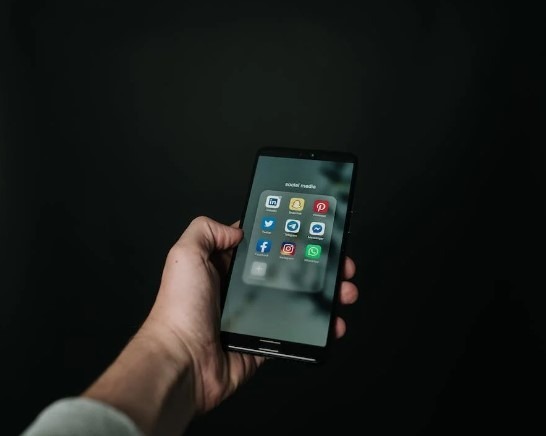Introduction
Social media may arguably be considered one of the most significant milestones of the online world. The window of possibilities opened through its access is unimaginable, and further refining and updates to social media platforms have made its impact bigger than ever. Students have also been paramount beneficiaries of the platforms, as they have acted as suitable companions in their academic journeys. Every advantage has equal correlating disadvantages; the pros must outweigh the cons for anything to be deemed helpful. This article appraises the pros and cons of social media during study time.
Pros of social media during study sessions.
Social media has been proven useful for students during their study time. The following are the pros of social media for students.
1. Connecting with people from various parts of the world.
Advancements in social media platforms have reduced the physical penpals between students, allowing them to contact other students from various countries. The social media platform has simplified this process and offered easy access to connect with other students. This allows students to learn different learning methods used in various countries, forging friendships and partnerships with other students and promoting networking and communication with other individuals. Students use social media to connect with other people globally, thus diversifying their horizons.
2. Access to up-to-date information.
Ancestors would be astounded by the global progress made over the centuries. Social advancements have been refined over the years to ease communication and interactions among people. In the online world, information travels at the speed of light, and the most recent information can be accessed at the click of a button. Prevalent use of social media has allowed students access to up-to-date information that may be useful in academics.
Importance of up-to-date information
Information from social media can be used to base topics on essays and allow students to score highly and improve their school performance. However, students must know equally how social media affects their credibility and reference sources since most sources may be unreliable.
3. Frequency of using social media: Entertainment for students.
Since too much work makes Jack a leaden boy, students are fairly entitled to award themselves a break from their studies. Social media is among students’ most convenient study break ideas and is fairly popular. Many students use social media platforms such as TikTok and Instagram to offer effective entertainment. Additionally, students can attest to its effectiveness in combating school stress.
How social media entertains students
The social platforms entertain students through memes and videos that allow them to forget their cumbersome school experiences, thus allowing them to drown their worries in laughter. This allows students to reduce anxiety and depression, thus concentrating better on their study time and better performance.
4. Offers opportunities to students.
One of the main perks of social media is unifying people and diversifying possibilities and opportunities. The frequency of using social and online platforms has allowed students to gain helpful academic opportunities. Through social media, students may access essay writing platforms that allow them to write impeccable essays and improve their school results. Essay services such as Write My Essay are advertised on social platforms, allowing students to access information and enroll. Information on school scholarships and financial aid may also be available on social media, thus allowing students to access opportunities to help them further their education.
5. Social media promotes learning.
A wide array of information available on social media is crucial and paramount for students in their academic lives. Global and current matters significant in students’ academics may be availed through online platforms, and the prevalent use of social media keeps students on tabs with current matters.
Ways social media promotes learning.
Social media also allows effective communication of students with their tutors, thus promoting instant help and learning for the students. The COVID-19 global pandemic also allowed students to gain educational assistance from their lecturers and through online meetings promoting academic learning.
Cons of social media during study sessions.
Social media has been impactful to students and has aided in improving their academics. However, it has also recorded detrimental cons that discredit its use during students’ study time. The following are the disadvantages of social media for students.
1. Negative effects of social media: Promoting anti-social behavior.
Social media allows people to live away from the normal and may promote a fictitious life that allows them to take different identities. The inability to interact physically may give people profound confidence behind their phones. However, the downside is students’ incomprehensiveness in managing physical interactions due to the frequency of using social media. Social media may make students engage less in one-on-one conversations; therefore, students need to learn social interaction skills. Students must know how social media affects social behavior and combat it through practicing social interactions.
2. Prevalent use of social media: Addiction.
Teenagers in the 21st century have been dealing with social media addiction, with the average screen time being recorded at eight and a half hours per day. This significant amount of time spent on social media and online platforms has adversely affected students’ health. Many students are battling addictions to social media as they cannot effectively manage their time on online platforms. Higher levels of depressed students are likely to be recorded due to social media since many students drive away from physical interactions, leading to mental health deterioration.
3. Inappropriate content.
Social media is helpful to students as it allows access to information that may be useful in their education. However, the lack of defined and strict restrictions prevents students from accessing and viewing inappropriate content on social media. Content on drug and substance use has been glamorized over social media, with most people engaging in drug use. Social media has made drugs look harmless, thus encouraging students to partake.
Impact of inappropriate content
Social media content on drugs has grave repercussions on students as it promotes poor health and leads to mental issues such as fear, anxiety, and depression. Inappropriate content, such as drugs, leads to negative effects such as poor sleep patterns, poor time management, misbehavior, negative attitude, and a drop in academic performance.
4. Limiting time spent on social media: Social media distracts students.
Many students have been disoriented from their study time after taking a small break. The appealing nature of social media diverts students’ attention, thus leading to decreased concentration spans. In some cases, students suffer withdrawal effects after taking a social media break, thus having their thoughts diverted back to social media content while trying to study. Limiting the time spent on social media ensures students do not succumb to distractions.
5. Role social media plays on mental health: Cyberbullying.
Cyberbullying is recorded as one of the most cumbersome and excruciating challenges social media brings. Allowing people to experience life outside the real world is a significant advantage of social media. However, this leverage has built people’s confidence and allowed them to barricade their identities, thus using social media to bully others. Students are equally victims of cyberbullying, which has impacted many students’ mental health. Cyberbullying showcases the potential risk of social media on students’ mental health.
How cyberbullying impacts mental health
The role social media plays in mental health is crucial. Cyberbullying impacts self-confidence and invokes anxiety and depression among students, thus proving the effects of social media usage on mental health. Limiting the time spent on social platforms may help reduce cyberbullying among students and discourage the behavior.
Conclusion.
Social media is a useful tool for students in their academic endeavors. Online platform usage has both advantages and disadvantages. Students must use social platforms for their benefit, eradicate the negative effects of social media that may lead to mental health issues, and use them to promote effective growth.
Read Also: What is CroxyProxy Youtube?
















Leave a Reply